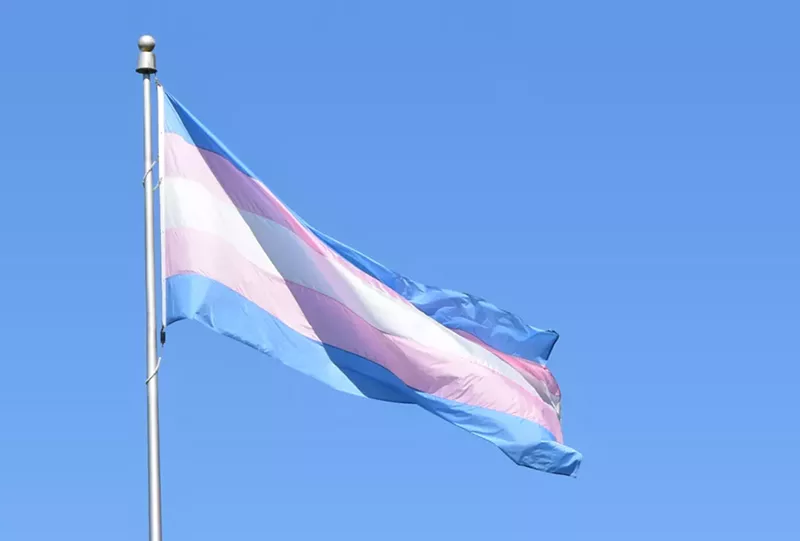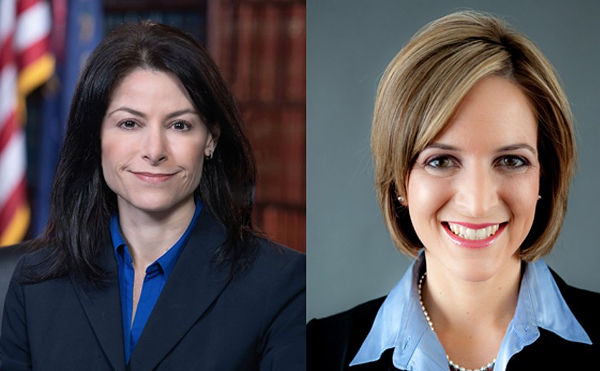Corewell Health restores gender-affirming care after public backlash
Equality Michigan calls the decision a victory for civil rights, trans youth


Audio By Carbonatix
[
{
"name": "GPT - Leaderboard - Inline - Content",
"component": "35519556",
"insertPoint": "5th",
"startingPoint": "3",
"requiredCountToDisplay": "3",
"maxInsertions": 100,
"adList": [
{
"adPreset": "LeaderboardInline"
}
]
}
]
Corewell Health has reversed course and will restore gender-affirming care for transgender minors after a week of mounting criticism from civil rights organizations, elected officials, and the LGBTQ+ community.
The healthcare system, one of the largest in Michigan, had halted new hormone therapy for minors following a controversial executive order from President Trump that threatened to strip federal funding from hospitals offering such care. That decision made Corewell the first medical system in the state to restrict gender-affirming care for young people, drawing criticism from advocacy groups and public officials, including Michigan Attorney General Dana Nessel.
On Wednesday, Corewell insisted in a statement that its “pause” on gender-affirming care for minors was just temporary.
“We are lifting our pause on new hormone therapies for pediatric patients seeking gender affirming care,” Corewell said in a statement to Metro Times. “Care decisions are best made between physicians and their patients and families.”
The statement added, “We briefly paused beginning these therapies to allow us time to assess the potential impact that recent policy changes might have on our patients and their health. Contrary to some inaccurate reports, we never suspended any gender affirming care for any of our patients.”
Last week, Corewell told the Detroit Free Press that “we are not beginning any new hormone therapy regimens for minor patients seeking gender affirming care. We do not perform gender-affirming surgeries on minors. Our team will continue monitoring federal changes to rules and regulations. We remain committed to providing the highest quality health care to all the patients we serve.”
LGBTQ+ advocates applauded the decision but said damage has already been done.
“We see this decision as one that’s family-centered, equality-centered, and science-centered,” Erin Knott, executive director of Equality Michigan, an LGBTQ+ advocacy group. “The pain and confusion endured by families and young people who had appointments cancelled was tragic and avoidable. The best time to make the right decision was yesterday, but the next best time to make the right decision was today. So, we extend a thank you to the Corewell leadership team for righting the ship.”
Corewell reversed its policy after Equality Michigan and more than 40 other organizations, including the ACLU of Michigan and the NAACP Michigan State Conference, sent an open letter to hospital leaders urging them to reinstate care.
Ferndale Pride, which hosts one of the state’s largest LGBTQ+ festivals, had also taken action, dropping Corewell Health as a sponsor and returning its $2,500 sponsorship in protest.
Michigan Attorney General Dana Nessel recently issued guidance on the issue, saying that “the availability of funding has no bearing on Michiganers’ right to seek and receive healthcare services without discrimination.”

“Refusing healthcare services to a class of individuals based on their perceived status, such as withholding the availability of services from transgender individuals based on their gender identity or their diagnosis of gender dysphoria, while offering such services to cisgender individuals, may constitute discrimination under Michigan law,” Nessel wrote.
Studies have shown that access to gender-affirming care significantly reduces depression and the risk of self-harm among transgender youth. According to a University of Washington study, transgender individuals between the ages of 13 and 20 who receive puberty blockers and hormone therapy are 60% less likely to experience moderate to severe depression and 73% less likely to engage in self-harm or suicidal behavior.
Equality Michigan called the Corewell’s decision a step in the right direction.
“We want this display of thoughtful leadership to serve as an example for other healthcare systems in the U.S.,” Knott said. “We also wish that Michigan, as we often do, can send a signal of hope to trans young people and their families across the country today. Michigan is turning the lights back on. For healthcare. For civil rights. And for democracy.”
The fate of Trump’s executive order remains in the hands of the courts. A coalition of civil rights groups has challenged the order in federal court.






